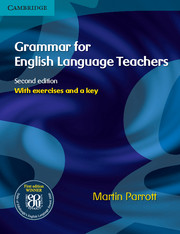Summary
Key considerations
Learners often consider modal verbs to be a particularly ‘problematic’ area of English grammar. They have problems:
• in choosing when to use them.
• in choosing which ones to use.
• in constructing questions and negative statements involving modal verbs.
At lower levels, learners often prefer to concentrate on only one meaning or function of a particular modal verb at one time. They sometimes find it confusing that one modal verb may have several meanings or functions.
Not all grammars and textbooks agree about whether some forms (e.g. have to, had better) are modal verbs or not. If we define modal verbs for our students, we need to bear in mind that they may come across alternative definitions.
What are modal verbs?
Modal verbs belong to the larger category of auxiliary verbs, i.e. we don’t use them on their own; we have to use them in conjunction with another (main) verb. They are thus sometimes also called ‘modal auxiliaries’.
What do they do?
We use modal verbs to make an assessment, judgement or interpretation of what we are speaking or writing about, or to express our attitude to this.
She can swim (ability)
You ought to be more polite (obligation)
You must try to stand up and walk (necessity)
It could rain tomorrow (possibility)
The family should be home soon (logical deduction)
They will try to do things before they have learned how to. (disapproval)
Course materials usually also link modal verbs to particular communicative functions.
Modal verbs are used far more in spoken than in written English. This is because it is more common to express these communicative functions in face-to-face interaction.
What do they look like?
For teaching purposes, a number of verbs and expressions are grouped together as modal verbs because they have a broadly similar meaning or function. In fact, the form of these verbs varies, and it is helpful to consider modal verbs under the following broad headings:
• ‘pure’ modal verbs.
I can swim.
They may come.
- Type
- Chapter
- Information
- Grammar for English Language Teachers , pp. 152 - 169Publisher: Cambridge University PressPrint publication year: 2010



